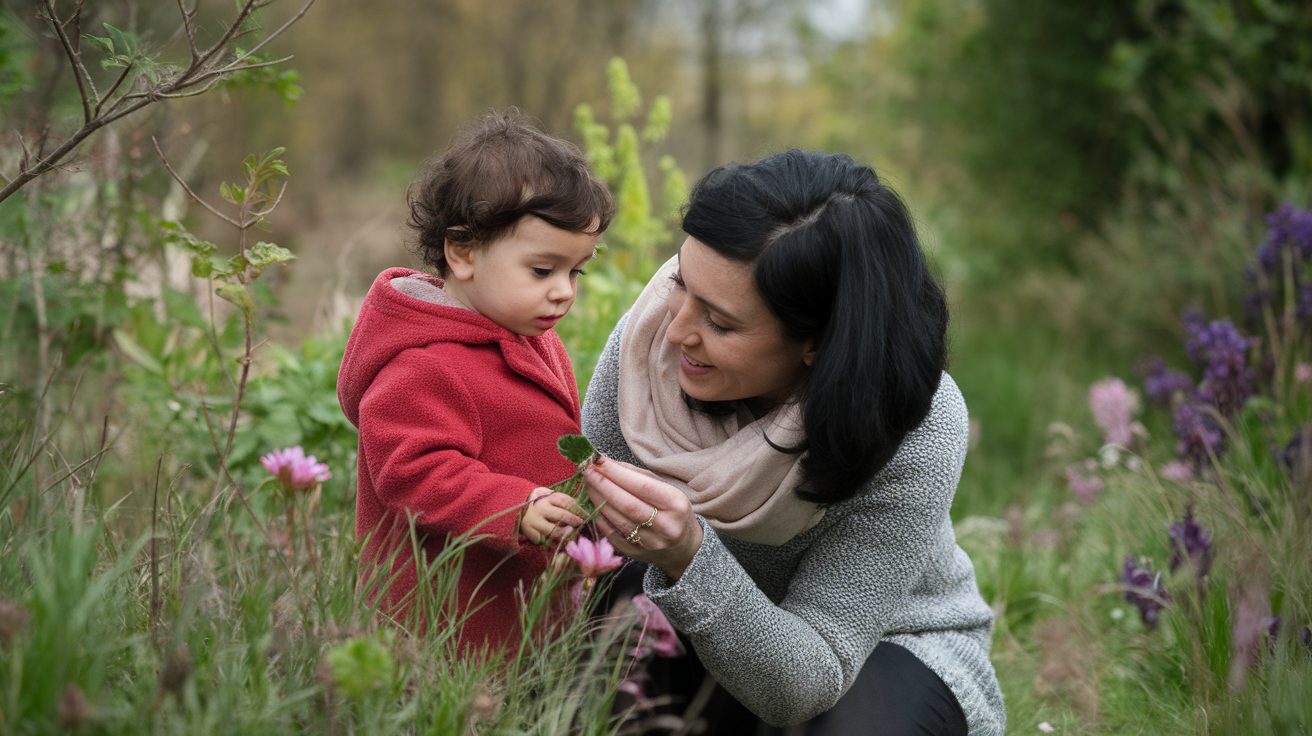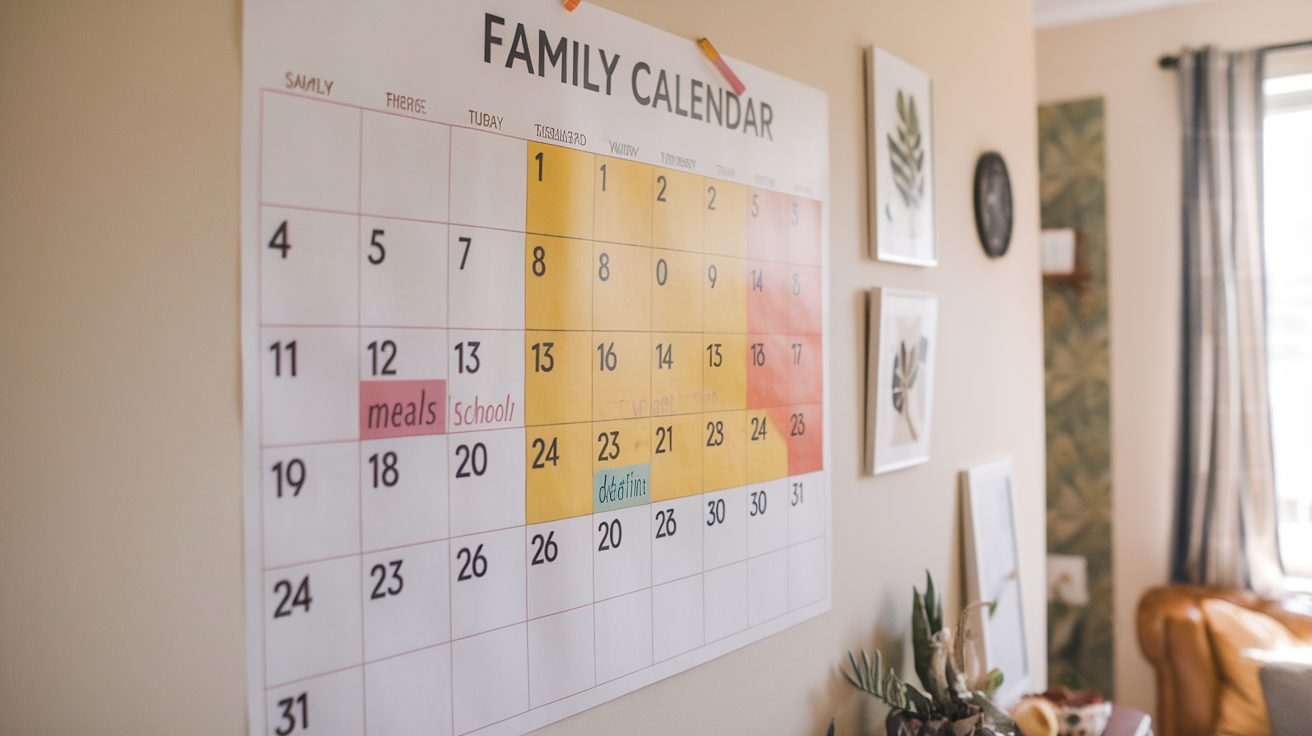Every mom has those days. The dishes are piled up. The kids are cranky. The house is a mess.
And that little voice whispers, “Am I doing enough?”
Here’s the truth: being a “better mom” isn’t about being perfect. It’s not about Pinterest-worthy lunches or Instagram-ready playrooms.
It’s about small, everyday choices that make a big difference.
Think of these tips as your friendly mom-to-mom chat. They’re simple shifts that any mom can try – even with a toddler hanging onto her leg.
Ready to discover how small changes can transform your motherhood journey?
Key Tips for Better Motherhood
1. Prioritize Self-Care
You can’t be your best self when you’re running on empty. As moms, we often forget about our own needs. But here’s the truth: taking care of yourself isn’t selfish.
Why It Matters:
A rested mom brings more patience to daily challenges. Your emotional energy stays higher throughout the day. Kids learn important lessons about valuing self-care by watching.
Quick Action Steps:
- Use naptime for meditation or reading
- Wake up 15 minutes early for quiet time
- Take 5-minute breathing breaks
- Pick up a forgotten hobby
- Schedule short walks
2. Communicate Effectively
Good communication goes beyond daily chatter. It’s about building trust and understanding with your child.
Why It Matters:
Your kids feel emotionally safe sharing their thoughts and feelings. They learn better ways to express themselves as they grow. These skills strengthen your family bonds for years to come.
Quick Action Steps:
- Get down to eye level when talking
- Put away your phone during talks
- Ask specific questions about their day
- Listen without interrupting
- Share appropriate stories from your life
3. Spend Quality Time Together
Being present beats being perfect. Your child needs your attention more than picture-perfect moments.
Why It Matters:
One-on-one time deepens your emotional connection each day. These moments create lasting memories they’ll carry into adulthood. Good behavior comes naturally when children’s emotional needs are met.
Quick Action Steps:
- Set aside 15-30 minutes of uninterrupted time daily
- Turn off phone notifications
- Let your child choose activities
- Make routine tasks fun together
- Have real conversations during car rides
4. Embrace Child-like Curiosity
Let your child’s wonder guide you to rediscover the magic in everyday moments. Sometimes, the smallest things bring the biggest joy.
Why It Matters:
Natural learning happens when you follow your child’s interests. Daily routines become adventures when seen through curious eyes. Your connection grows stronger through shared discoveries.
Quick Action Steps:
- Get down and explore with them
- Ask “what if” questions
- Join their pretend play
- Stop to examine their discoveries
- Share their excitement
5. Set Boundaries and Say ‘No’
Setting healthy limits makes you a better mom. You don’t have to do everything for everyone.
Why It Matters:
Clear boundaries prevent exhaustion and burnout. Your children learn valuable lessons about self-respect. Kids develop an understanding of healthy limits. Your family finds a better balance in daily life.
Quick Action Steps:
- Block off phone-free family time
- Take short breaks when needed
- Say no without over-explaining
- Keep some time just for yourself
- Choose commitments carefully
6. Be Present in the Moment
Your undivided attention is the greatest gift you can give your child. Quality beats quantity.
Why It Matters:
Children feel secure when they have your full attention. Trust grows in these focused moments together. Your child learns their thoughts and feelings matter.
Quick Action Steps:
- Put your phone in another room
- Focus on one task at a time
- Listen to their full stories
- Notice small details
- Share in their emotions
7. Learn to Ask for Help
Motherhood isn’t meant to be a solo journey. Reaching out makes you stronger, not weaker.
Why It Matters:
Support from others prevents feeling overwhelmed. A community of helpers enriches your parenting journey. Sharing the load makes motherhood more enjoyable. Strong support systems last through all stages of parenting.
Quick Action Steps:
- List tasks others can help with
- Join parent support groups
- Connect with school parents
- Be specific when asking
- Accept help when offered
8. Accept Imperfection
Perfect moms don’t exist. Real moms who try their best do.
Why It Matters:
Letting go of perfection reduces daily stress and anxiety. Your children learn it’s okay to make mistakes. Everyone in the family develops better resilience. Your home becomes a happier, more relaxed place.
Quick Action Steps:
- Acknowledge mistakes openly
- Share your learning moments
- Celebrate small wins
- Practice self-compassion
- Focus on progress, not perfection
9. Encourage Emotional Regulation
Help your children understand and manage their big feelings.
Why It Matters:
Kids who understand emotions make better choices. Children learn healthy ways to handle stress. These skills help them succeed in school and friendships.
Quick Action Steps:
- Create a calming corner
- Practice deep breathing together
- Use feeling charts
- Model managing your emotions
- Validate feelings first
10. Build Positive Experiences
Small moments of joy add up to lasting memories.
Why It Matters:
Happy memories strengthen your family bond. Your child develops a positive outlook on life. These experiences build their sense of security. Joy becomes a natural part of your daily routine.
Quick Action Steps:
- Start simple family traditions
- Make ordinary moments special
- Take photos of daily life
- Create weekly rituals
- Plan mini-adventures together
11. Practice Patience
Every mom knows those moments when keeping cool feels impossible. But patience isn’t about being perfect – it’s about progress.
Why It Matters:
A calm response helps your child feel safe and understood. Your relationship grows stronger through peaceful moments. Children learn better when emotions are steady. These skills help everyone handle future challenges.
Quick Action Steps:
- Count to ten before responding
- Take deep breaths in tough moments
- Step away briefly when needed
- Use simple calming phrases
- Remember this phase will pass
12. Show Appreciation for Your Children
Small words of encouragement can make a big difference in your child’s day.
Why It Matters:
Kind words create a positive home atmosphere. Children who feel valued try harder at new things. Your relationship grows stronger with each acknowledgment.
Quick Action Steps:
- Notice small efforts
- Give specific praise
- Celebrate daily wins
- Write little thank-you notes
- Share proud moments
13. Create a Structured Routine
Kids thrive on knowing what comes next. A simple routine brings comfort and clarity.
Why It Matters:
Predictable days help children feel secure and calm. Regular routines make transitions easier for everyone. Good habits form naturally through consistent schedules. Children learn responsibility through regular expectations.
Quick Action Steps:
- Set consistent meal times
- Create a bedtime ritual
- Make a visual schedule
- Plan regular activities
- Keep weekends predictable
14. Teach Empathy and Kindness
Raising kind kids starts with small daily actions.
Why It Matters:
Understanding others’ feelings prevents conflicts. These skills help them succeed in school and life. Your family creates a positive impact in your community. Empathy makes the world a better place for everyone.
Quick Action Steps:
- Discuss others’ feelings
- Read books about kindness
- Practice random acts of kindness
- Help others together
- Acknowledge kind choices
15. Foster Independence
Let them try, fail, and succeed. Small steps lead to big confidence.
Why It Matters:
Independent kids become capable adults. Learning from mistakes builds real confidence. These skills prepare them for future challenges. Your child develops trust in their abilities.
Quick Action Steps:
- Assign age-appropriate chores
- Let them make simple choices
- Teach basic life skills
- Allow safe mistakes
- Praise effort over perfection
Your Journey to A Better Mother Starts Now!
Motherhood is a beautiful journey of growth, learning, and love. These simple strategies aren’t about being perfect but about being present, authentic, and intentional in parenting.
Start by choosing just one or two areas to focus on this week.
Maybe it’s spending ten minutes uninterrupted time with your child or taking a few moments for self-care. Build from there.
Ready to Transform Your Parenting Journey? Share your experience below and take the first step toward more joyful, confident parenting.
Frequently Asked Questions
What Is The Hardest Age to Be A Mom?
Answer based on different stages and personal experiences, addressing the challenges of each age group.
How Do I Know I am A Good Mom?
Recognize that being a good mom is about love, learning, and doing your best. Self-reflection and feedback from children can guide you.
Which Stage Of Motherhood Is The Hardest?
Discuss various stages of motherhood and the unique challenges of each, from infancy to adolescence.























